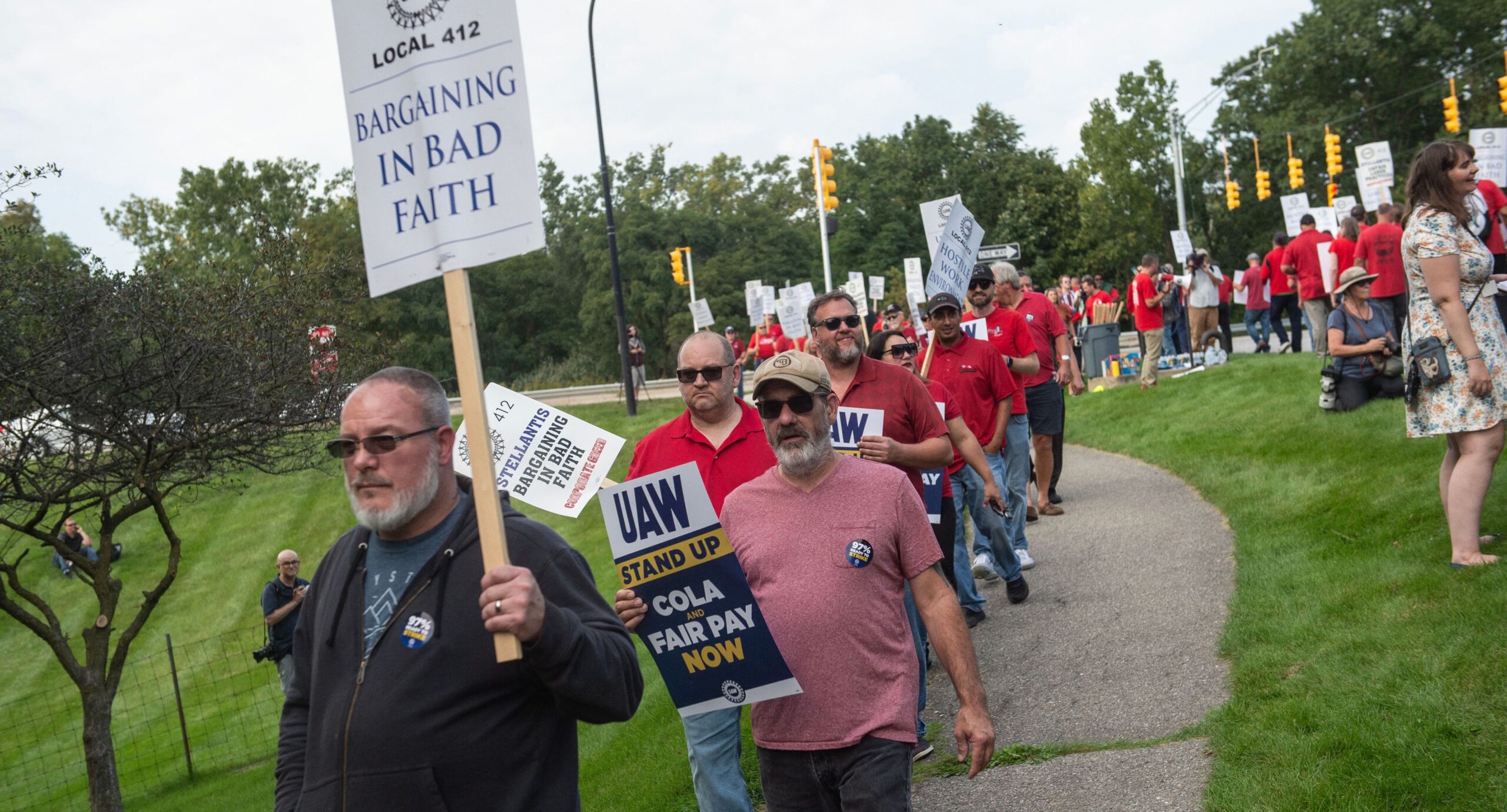There has been much talk of the revival of organised labour in the West in the last few years. And as president Joe Biden visits Michigan today in support of the striking United Auto Workers (UAW), this might well be true.
After all, no sitting US president has ever visited the picket line, despite over a century of bitter industrial warfare in the US, reaching right back to the titanic — and bloody — clashes in the railroad and steel industries in the late nineteenth century. Yet despite the seemingly auspicious prospects for US unions today, the truth is that President Biden’s visit reflects the enduring weakness of organised labour rather than its strength.
To see this, let’s try a thought experiment: simply imagine any other sitting US president visiting a picket line in any other period of industrial militancy. Imagine Republican President Dwight D. Eisenhower visiting the picket lines during the Steel Strike of 1959, which saw half a million workers come out, the biggest walk-out in US industrial history (compared with roughly 18,000 workers at the Detroit Three today).
Or imagine Democrat President Harry S. Truman visiting the picket line of the United Mine Workers of America in 1946, less than a year after the national emergency of the Second World War had ended, and in which 400,000 workers came out. Franklin Delano Roosevelt, architect of the New Deal, never visited a picket line during his four terms as president, despite his tenure in the White House encompassing another of the largest strikes in US history with the textile workers’ strike of 1934, which again saw 400,000 workers down tools.
Ever since President Theodore Roosevelt invited the representatives of striking coal miners and bosses to the White House in October 1902 in order to avoid the nightmarish prospect of what he called a ‘social war’, the federal government has explicitly built up its authority on mediating between labour and capital. For a US head of state to openly side with striking workers in the class struggles of the last century would have meant undercutting the federal government.
The fact that Biden is gracing the strikers with his presence is precisely because he knows that it will boost his authority rather than hurt it — and it will not hurt it because organised labour is simply not as strong as it was during the great strikes of the last century. We can rest assured that if the Democrats feared that a visit to the picket line would imperil relations with the billionaire donors and tech oligarchs on whom they depend, they would not be doing it.
Let us hope the UAW workers win better wages and benefits, and that they can manoeuvre between the GOP and Democrats. But let us not imagine that Biden’s visit heralds the triumphal revival of America’s working class.











Join the discussion
Join like minded readers that support our journalism by becoming a paid subscriber
To join the discussion in the comments, become a paid subscriber.
Join like minded readers that support our journalism, read unlimited articles and enjoy other subscriber-only benefits.
Subscribe